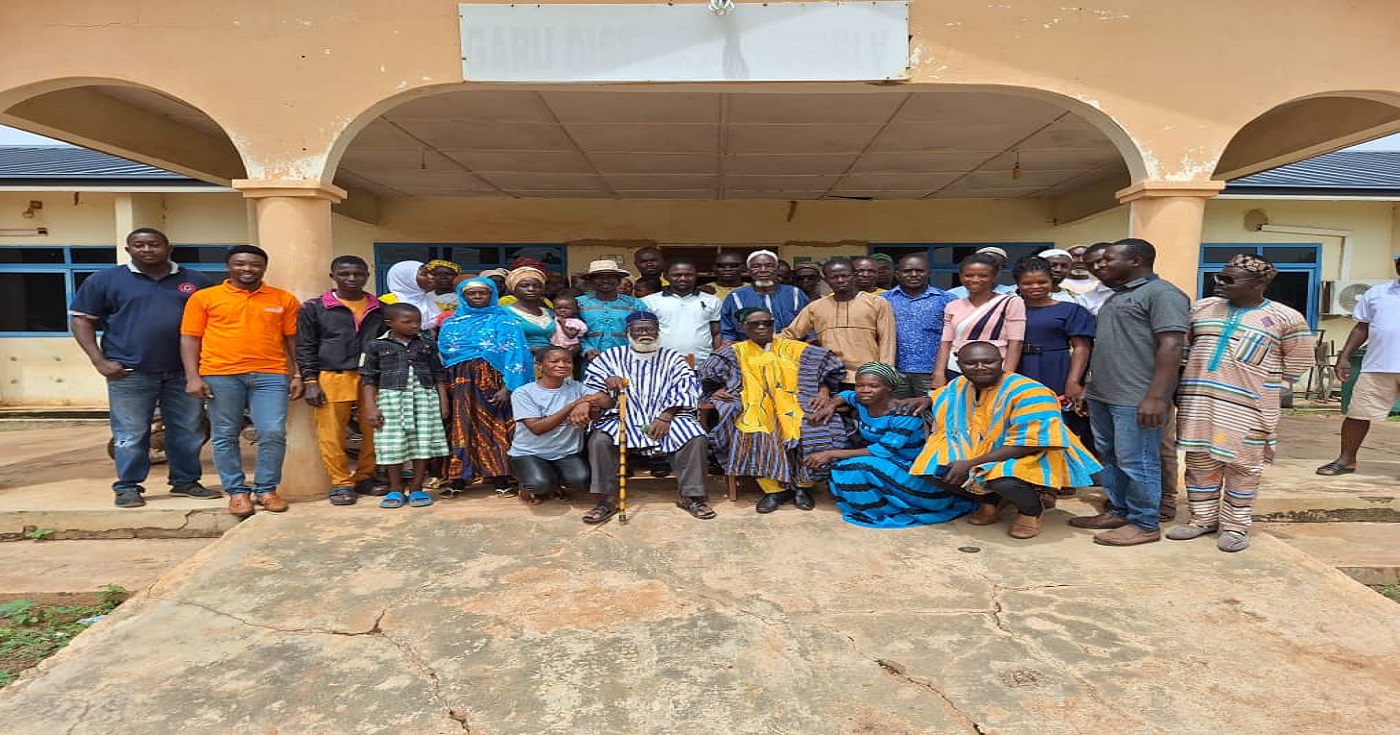
Stakeholders in Mion in the Northern Region, have commended Shea Network Ghana, an organization of shea sector businesses, stakeholders and actors for implementing a life-changing project that has brought a positive change in attitude in the lives of men and women in the area.
The stakeholders, who were participants of the Local-Level Coordination Meeting held on Wednesday, August 23, 2023, testified that the presence and the activities of the SNG, has changed the lives of people in the area, especially attitude of men towards their wives. SNG, through its partnership with OXFAM Ghana, is implementing the attitudinal change project dubbed “Gender Model Family (GMF)” that promotes and encourage men to support their wives in both their businesses and domestic chores. The GMF, is a family model where men and women share household chores equally so as to allow space for women to engage in a paid works towards their economic emancipation. It enables husbands and wives to live in an equitable and just manner.
The model challenges some of the traditional ways husbands and wives live together.
GMF, drives on the principle that when there is equity between men and women, society can see the social and economic benefits. The Activity, is part of the implementation of the Women’s Economic Advancement for Collective Transformation (WEACT) Project, implemented by the SNG in partnership with OXFAM and sponsored by Global Affairs Canada in Kpulgine and Salankpang, all in the district.
The stakeholders were made up of Community leaders such as Chiefs, Religious Leaders women representatives and government agencies including the Ghana Health Services, Department of Agriculture, Department of Social Welfare, Ghana Education Service, beneficiaries under the WEACT project, among others. The meeting was held at the Mion District Assembly organized by the SNG and OXFAM. It was to create opportunity for the stakeholders to discuss the journey so far in the implementation of the project, its challenges and the way forward.
Some of the beneficiaries, in their testimonies, noted that through the GMF concept, their lives both economic and social, realized a positive change. According to participants, the concept of the Gender Model Family is ‘motivating’.
“Living as a Gender Model Family has shown to my community that it is not only men who can bring income to the family but that women too can. My wife’s business is doing well since we joined the Gender Model Family project because I am sharing the domestic chores with her” a husband of a gender model family revealed
“I didn’t know that as men, we needed to support our wives in their household chores, before the GMF came, my wife used to handle all the chores but when we started the GMF, I now support my wife in all these” one beneficiary narrated.
“My husband and I were not that closed, there was no consultation between us, he used not to ask or consult me whenever he wanted to do anything that has to do with the family, also he never supported me in any domestic chores, but now, I thank God, he helps me in everything and also consults me in everything he does now” a female beneficiary testified
In their submissions, the stakeholders lauded SNG for the move and called on other organizations to emulate same. They also called for the expansion of the project to benefit other communities to ensure many more residents benefited.
“I personally have seen a positive change in the lives of many of our people and that is because they are on the Gender Model Family Activity, and i must commend SNG for that intervention” a participant said
“After listening to the beneficiaries testifying the goodness of the GMF and based on what i have also seen on the grounds, i can only thank the SNG and call for more of such interventions” another stakeholder stated.
GMF
Under GMF, couples commit to an action plan which they develop themselves. This first involves a simple re-distribution of tasks including caring for the children.
After a family adopts this model, household tasks are not done according to whether you are a woman or girl. Everyone helps out with all tasks. Progressively, as with the work, decisions start to be shared.
As women have more say in decision-making, they begin to have more opportunities to become involved in community-management and leadership. As a result of new openness and communication, husbands and wives experience a renewed commitment and love for each other and this promotes peace and unity among others.
Written and published by
Adam Abdul-Fatawu Wunizoya
Communications Officer
Shea Network Ghana
